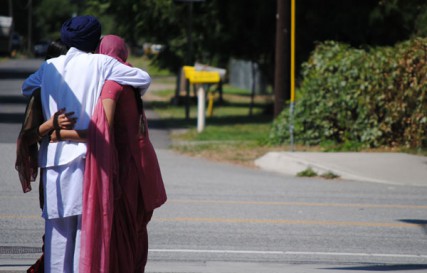
For Raed Jarrar, the FBI’s decision Wednesday (June 5) to begin tracking hate crimes against Arabs is a battle won in a larger war.
“This is just one part of fixing the system, because unfortunately many hate crimes against Arab Americans have not been noticed,” said Jarrar, spokesman for the American-Arab Anti-Discrimination Committee.
In addition to its decision on tracking anti-Arab hate crimes, the FBI has agreed to track crimes against a number of religious groups it has never before tracked. The new categories include reporting crimes committed against Buddhists, Hindus, Sikhs, Mormons, Jehovah’s Witnesses and Orthodox Christians.
“I think having these additional categories is wonderful,” said Samir Kalra, director and fellow at the Hindu American Foundation. Though there were intense efforts to include Hindus, Sikhs and Arabs in the statistics, these other groups weren’t advocated for as heavily.
The original recommendation signed by more than 100 members of Congress called for the FBI to add Sikh, Hindu and Arab hate crimes to the data collected under the agency’s crime reporting program. The program now tracks religious hate crimes against Jews, Catholics, Protestants, Muslims and atheists/agnostics.
FBI spokesman Stephen G. Fischer Jr. said the decision was made to include “all self-identified religions in the United States as listed in the Pew Research Center’s Pew Forum on Religion & Public Life (2008) and the Statistical Abstract (2012) approved by the U.S. Census Bureau.”
Before the recommendation can officially be implemented, FBI Director Robert S. Mueller, III must approve it. The FBI anticipates it will start collecting this data in 2015.
Gustav Niebuhr, associate professor in religion and media at Syracuse University, welcomed the decision. He cited the post-9/11 harassment of Sikh men, who were mistaken for militant Muslims because of their turbans. Similarly, Orthodox Christian immigrants from the Middle East who speak Arabic were harassed and their buildings vandalized by “people who simply couldn’t understand that this was a completely different group than the people they wished to punish.”
“I think smaller religious groups that are unknown by the general public are at risk for being targeted, and what the FBI has done is a good idea,” Niebuhr said. “It should serve as additional protection for some of these minorities.”
Both Kalra and Jarrar said tracking hate crimes had previously been difficult, given that data relied mostly on individuals to report incidents; now law enforcement will have to.
Jarrar added that ADC will be making sure the change is implemented, a large part of which, he said, involves training law enforcement to properly track these crimes. The group will also work with the Arab-American community to make sure it will support the reporting of hate crimes when they happen.
But the FBI’s decision to track these crimes it is not the final step, he said.
“Once we at least get indications on how bad it is, it will make it easier to plan solutions,” Jarrar said.






